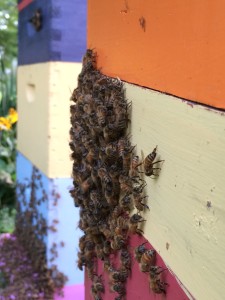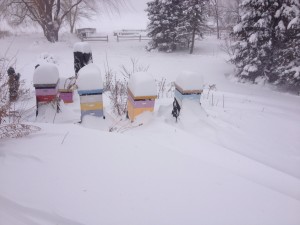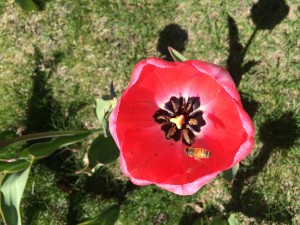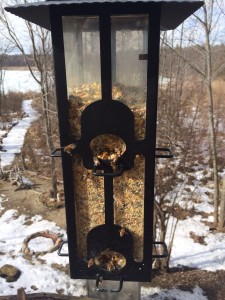As I write this our thermometer records 92, and my glass of tea is sweating even more than I am. Each evening we stroll through the apiary to see which hive is sporting the most magnificent beard.
I’m fine with the summer swelter. Too soon (like maybe the end of this week?) a prelude to winter will be here, followed the oft-bitter season itself. Too soon I’ll have to say good-night to my bees for a long winter’s sleep. That’s always hard on me. Not only do I miss working with them, but too often, I don’t greet as many as expected come spring. Overwintering in SW Michigan has been hard the last few years.
This Tuesday evening the Kalamazoo Bee Club will feature a speaker who knows a great deal about bees and successful overwintering. Hopefully you can join us, but if not, I’ll try to blog about his insights.
The bees need us to figure out how to help them survive the winter … and we need them. Hope to see you there.



